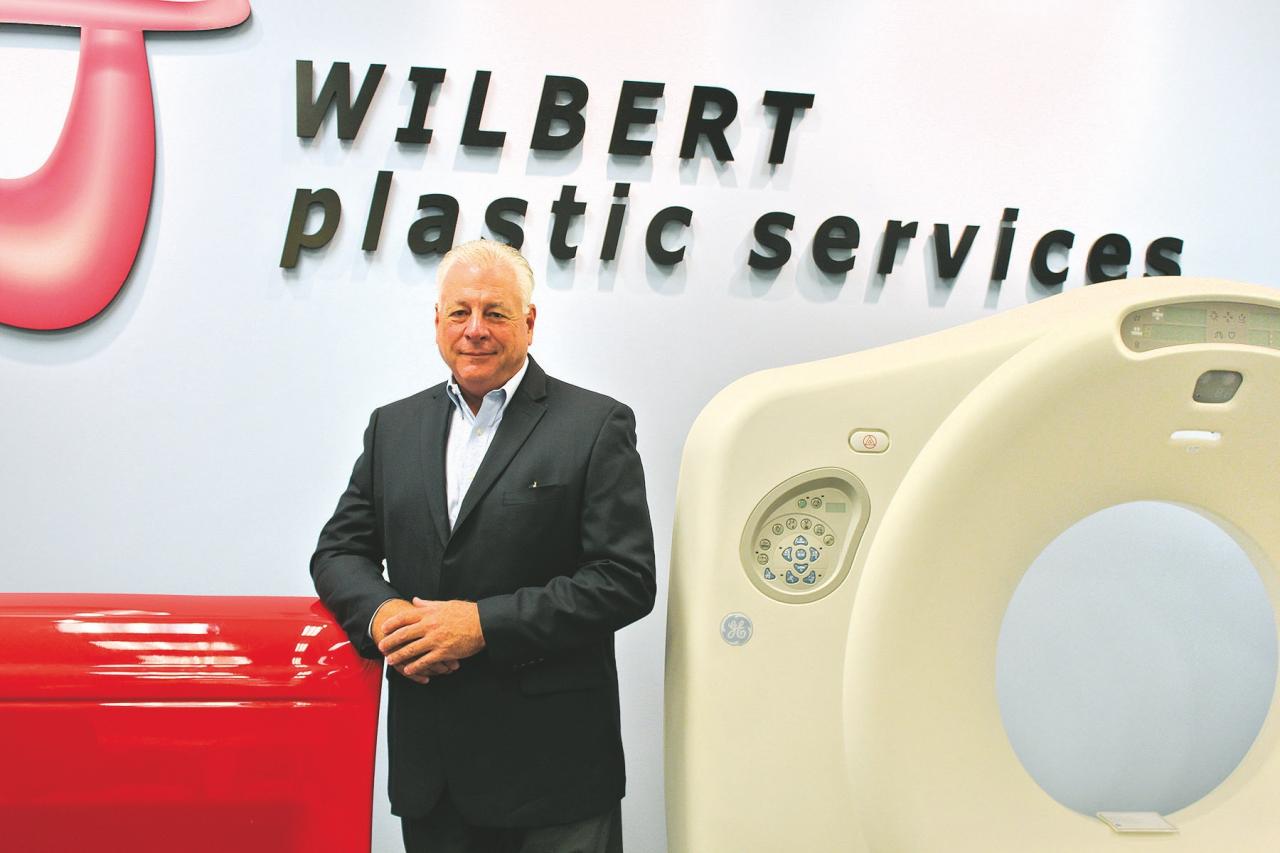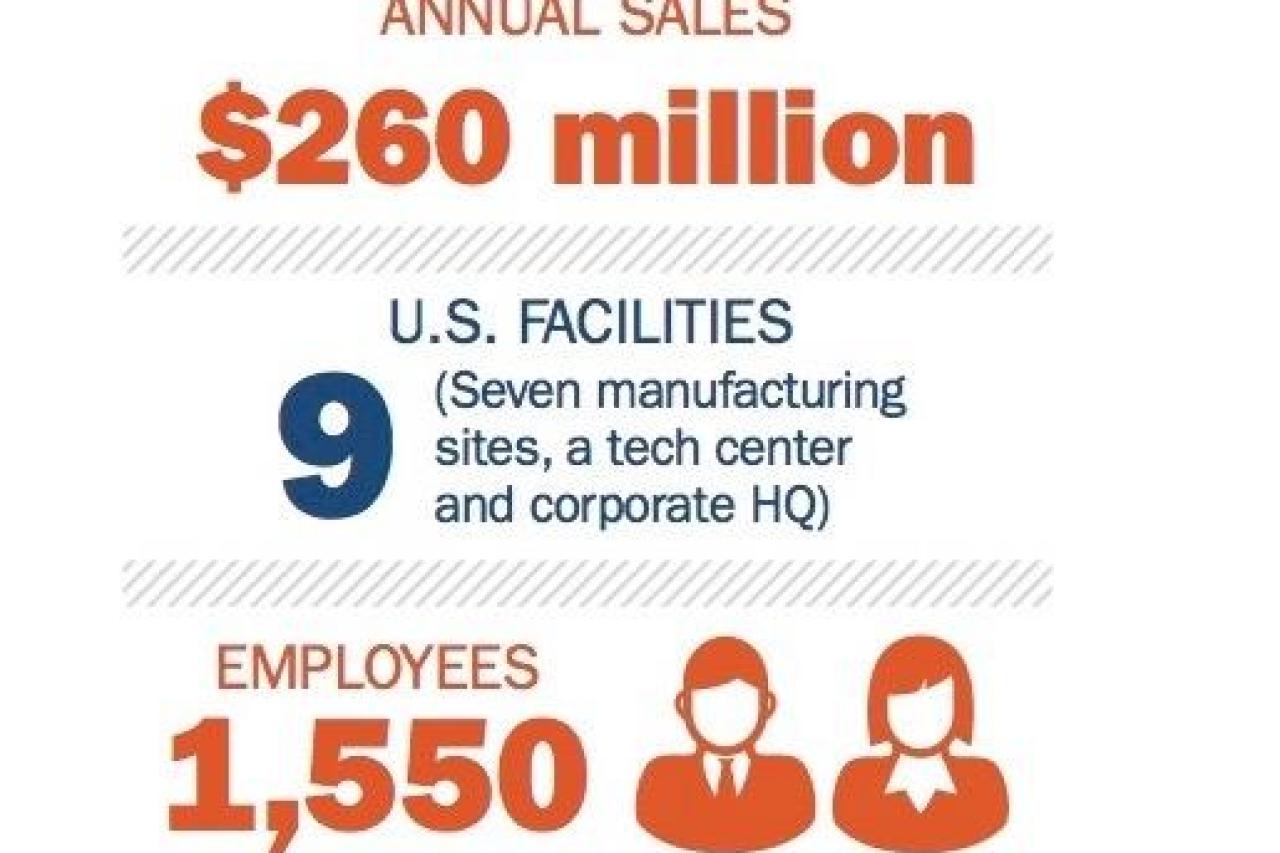September 20, 2016 Updated 9/20/2016
Email Print

Jeremy Carroll Wilbert Plastic Services Inc. has created a specialized training program for new employees and to help existing employees advance.

Belmont, N.C. — Greg Botner runs a $ 260 million plastics company. He needs an educated workforce. And he needs more workers every year given the company’s growth. His solution? Start his own “university.” Naturally.
Welcome to Wilbert U, an outgrowth of Wilbert Plastic Services Inc. Through August, Wilbert U has issued more than 2,400 certificates to 1,000 employees at all nine of the company’s U.S. locations. From Six Sigma to scientific molding, Botner is training his team for today and tomorrow.
“The point is we need an engaged and competently trained workforce. And people want to be engaged in something other than the task of just doing their job,” said Botner, Wilbert’s CEO and president. “The way we have found to do that is we’ve built an extensive training program. We are up to 12 different subject matters and 50 different courses online, in the classroom and onsite.”
The carrot for the employees is that compensation is directly tied to successful course completion. If employees want to be a quality auditor or material handler, they have to go through the proper training. Also, gone are days of automatic hourly pay increases after 180 days, for example, said Botner, 60, who took the top job at privately owned Wilbert in 2008.
In addition to Wilbert U, Botner this year will launch Fast Track, a program that helps employees identify a way to become a process engineer, process technician or department manager, for example.
“We identify a path of courses that is required for that person to make themselves eligible for that type of position. The whole idea is to give people a career path within the company so they can move to a livable and sustainable income level for themselves,” Botner said.
He credits Heath Garrett, Wilbert’s director of manufacturing excellence, for pushing the senior management team to adopt Wilbert U and Fast Track. Botner said three Wilbert employees, including Amelia Keown, corporate training director, devote 100 percent of their time to the training programs.

“We have a growing company and we were growing at a very fast pace from 2012 through 2015. And we far outgrew our ability to hire capable people and competent people,” Botner said.
“We’ve noticed retention rates have improved with technical personnel — process technicians, process engineers, maintenance technicians. The skilled and semi-skilled type positions. Obviously, that is a group that likes to be engaged in the technical aspects of their jobs. They are very hungry for continuous education and training that enhances their skill sets.”
It’s hard to argue with Botner’s methods. Just five years ago, Wilbert’s annual sales were $ 148 million and employment hovered between 700-800. Now with $ 260 million in sales and 1,550 employees, managing growth seems to be the order of the day. But Botner, who has turned around three businesses counting Wilbert, knows some companies are not as fortunate and offers advice for plastics executives facing a turnaround situation.
“I think you need to be honest with yourself first. Recognize what the company has to offer in the marketplace. The mechanics of cutting costs, doing the hard things, having discussions with customers about operational deficiencies, maybe having to raise prices. That’s the fundamental thing to do, but they’re pretty mechanical,” he said.
Botner said graduate students can walk someone through those steps. But digging deeper to find a point of differentiation — a technology buried within the company or concentrating the business on a geographic region — is a key.
“Most importantly, you’ve got to find the people to do it. I have found that it’s a blend. You can’t walk in and just exit everyone out the door and bring in new people. You have to tap into the experiences that are in the company, but you also have to blend in some new thinking and people with fresh eyes to help instill vigor into a stagnant situation. But you have to look to the people already in the business. There’s a lot of knowledge they can give you and you look for those core competencies that you can expand off of,” said Botner, who said institutional and tribal knowledge make a business function.
Wilbert has a footprint in 12 sectors, but three industries make up most of its business — automotive (35 percent), appliance (28 percent) and health care equipment (8-10 percent).
So, given all of Wilbert’s recent success, does anything keep Botner up at night? Yes, indeed.
“I wish I could say it’s only one thing.
“One is the economy and its impact on our business. Not that we can control the economy, obviously. But the increased pricing pressure, lack of growth with our OEM customers. That’s something I’m concerned about. The gains that we’ve made in both margin and productivity if [the U.S. stays] at this anemic pace we’re at now, those are going to be eroded.
“Secondly, a competently and trained skilled workforce. We have to keep the pressure on ourselves to keep our training programs up and ahead of what our business demands. We need to train our own personnel. Unfortunately, our educational institutions have failed miserably in the areas of technical and vocational education in the last 10 to 15 years. And we’re making up for that. But it’s something that does keep me awake at night. …
“Third, is innovation and adding value for our customer. How do we stay a step ahead of our customer and bring them technology or innovation? Innovation can take on many forms. How we service. Today, we have delivery methodologies for customers that are everything from 24 hours in advance to sequence line deliveries that are installed on the OEM product. How do we add value in the supply chain, not just in the product for our customers? Those are the three things that we constantly have to stay focused on. They are things I worry about on a daily basis,” he said.




























